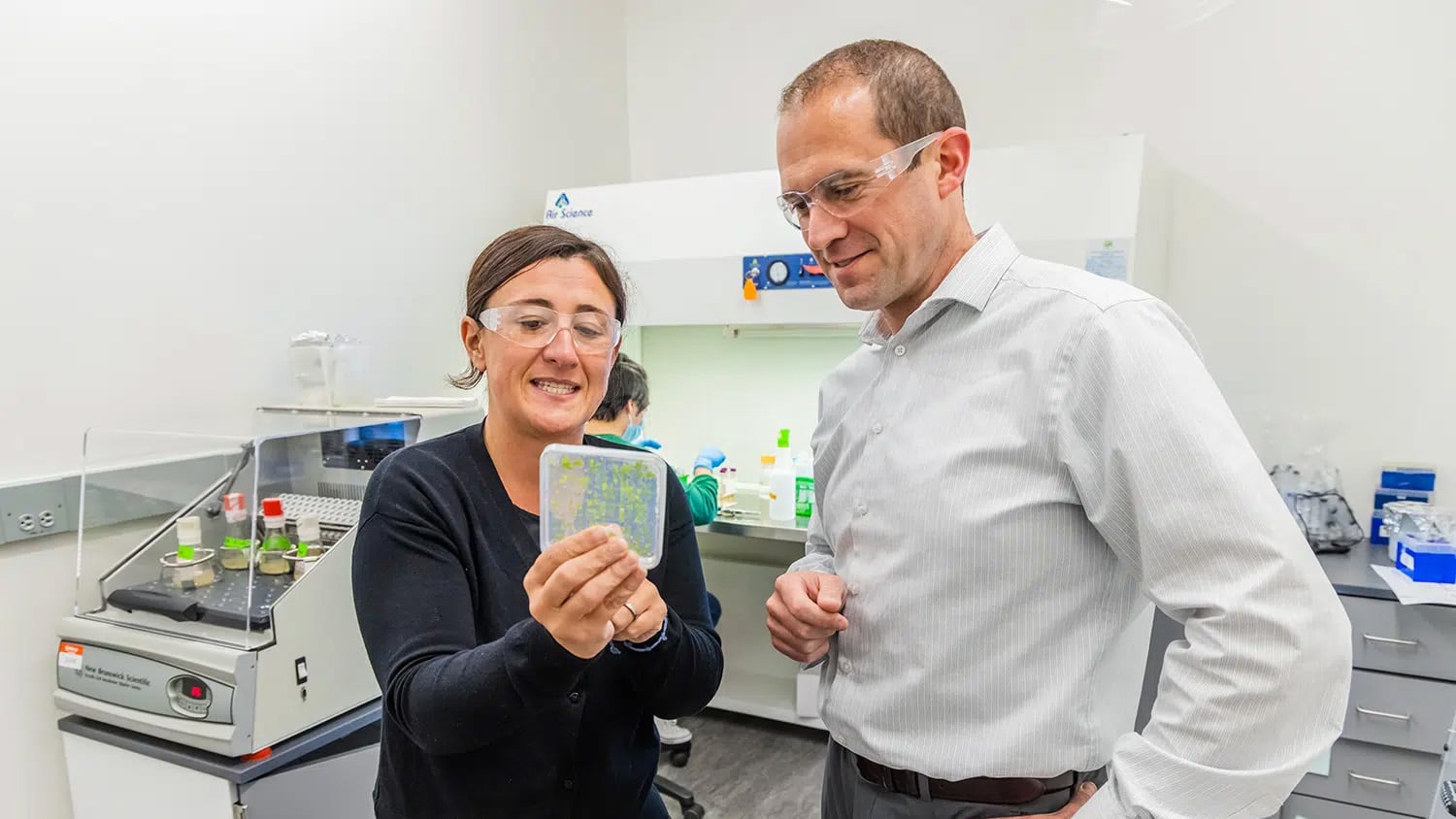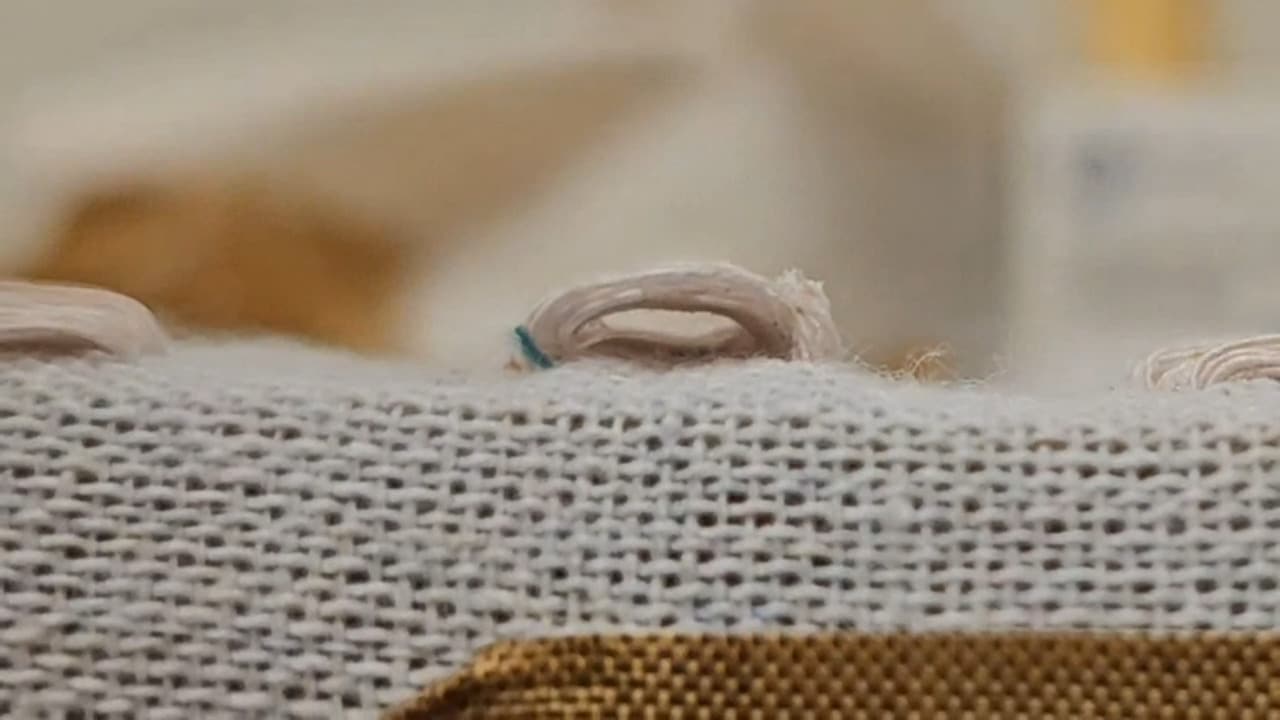NC State Gene ‘Knockout’ Floors Tobacco Carcinogen
In large-scale field trials, scientists from North Carolina State University have shown that silencing a specific gene in burley tobacco plants significantly reduces harmful carcinogens in cured tobacco leaves.
The finding could lead to tobacco products – especially smokeless products – with reduced amounts of cancer-causing agents.
NC State’s Dr. Ralph Dewey, professor of crop science, and Dr. Ramsey Lewis, assistant professor of crop science, teamed with colleagues from the University of Kentucky to knock out a gene known to turn nicotine into nornicotine. Nornicotine is a precursor to the carcinogen N-nitrosonornicotine (NNN). Varying percentages of nicotine are turned into nornicotine while the plant ages; nornicotine converts to NNN as the tobacco is cured, processed and stored.
The field tests in Kentucky, Virginia and North Carolina compared cured burley tobacco plants with the troublesome gene silenced and “control” plant lines with normal levels of gene expression. The researchers found a six-fold decrease in carcinogenic NNN in the genetically modified tobacco plants, as well as a 50 percent overall reduction in the class of harmful compounds called TSNAs, or tobacco-specific nitrosamines. TSNAs are reported to be among the most important tobacco-related compounds implicated in various cancers in laboratory experiments, Lewis said.
The research results were published online in Plant Biotechnology Journal.
Lewis and Dewey stress that the best way for people to avoid the risks associated with tobacco use is to avoid using tobacco products. But their findings show that targeted gene silencing can work as well in the field as it does on the lab bench.
“Creating a tobacco plant with fewer or no harmful compounds may also help with tobacco plants that are being used to create pharmaceuticals or other high-value products,” Dewey said.
To get initial lines of plants with the troublesome gene silenced, the NC State researchers used a technique called RNA interference in which genetic engineering was used to introduce a gene that inhibits the demethylase gene function into the tobacco plant.
Dewey and Lewis have since developed tobacco lines with the same effect without using genetic engineering. They randomly inserted chemical changes, or mutations, into the tobacco genome of burley tobacco plants. They then searched for plants in which the nicotine demethylase gene was permanently impaired. The researchers are currently working to transfer this mutation to widely used tobacco varieties.
Dewey and Lewis add that nothing else in the plant changed – growth or resistance to insects or disease, for example – after they knocked out this specific gene.
While Lewis believes that varieties of burley tobacco with a silenced demethylase gene will exist within the next few years, the NC State researchers say burley tobacco has a number of other targets for their gene silencing method.
The research is sponsored by Philip Morris USA.
– kulikowski –
Note to editors: An abstract of the paper follows.
“RNA Interference (RNAi)-Induced Suppression of Nicotine Demethylase Activity Reduces Levels of a Key Carcinogen in Cured Tobacco Leaves”
Authors: Ramsey S. Lewis and Ralph E. Dewey, North Carolina State University; Anne M. Jack, Lily Gavilano, Balazs Siminszky and Lowell Bush, University of Kentucky; Jerry Morris, Vincent Robert and Alec Hayes, Philip Morris USA
Published: Online Feb. 14 in Plant Biotechnology Journal
Abstract: Technologies for reducing the levels of tobacco product constituents that may contribute to unwanted health effects are desired. Target compounds include tobacco-specific nitrosamines (TSNAs), a class of compounds generated through the nitrosation of pyridine alkaloids during the curing and processing of tobacco. Studies have reported the TSNA N’-nitrosonornicotine (NNN) to be carcinogenic in laboratory animals. NNN is formed via the nitrosation of nornicotine, a secondary alkaloid produced through enzymatic N-demethylation of nicotine. Strategies to lower nornicotine levels in tobacco (Nicotiana tabacum L.) could lead to a corresponding decrease in NNN accumulation in cured leaves. The major nicotine demethylase gene of tobacco has recently been isolated. In this study, a large-scale field trial was conducted to evaluate transgenic lines of burley tobacco carrying an RNA interference (RNAi) construct designed to inhibit the expression of this gene. Selected transgenic lines exhibited a six-fold decrease in nornicotine content relative to untransformed controls. Analysis of cured leaves revealed a commensurate decrease in NNN and total TSNAs. The inhibition of nicotine demethylase activity is an effective means of decreasing significantly the level of a key defined animal carcinogen present in tobacco products.
- Categories:


